Around the middle of the 20th century a certain myth started to “run” around among proponents of theories that emphasized a strong relationship between language, culture and perception. According to this myth, Eskimo people had an enormous number of words for “snow” (hundreds, according to some accounts). Two very important things were subsequently discovered. One was that most of these languages are polysynthetic, meaning that they could combine a limited set of roots and word endings to create an unlimited set of words. The second, and more intriguing thing, was that each of the so-called snow synonyms defines, in fact, a very particular instance and context for the presence of snow. The word “Nuyileq”, for example, means “crushed ice beginning to spread out; dangerous to walk on. The ice is dissolving, but still has not dispersed in water, although it is vulnerable for one to fall through and sink. Sometimes seals can even surface on this ice because the water is starting to appear.” That is one extremely specific meaning. But the point is that it’s a necessary meaning, a vital one.
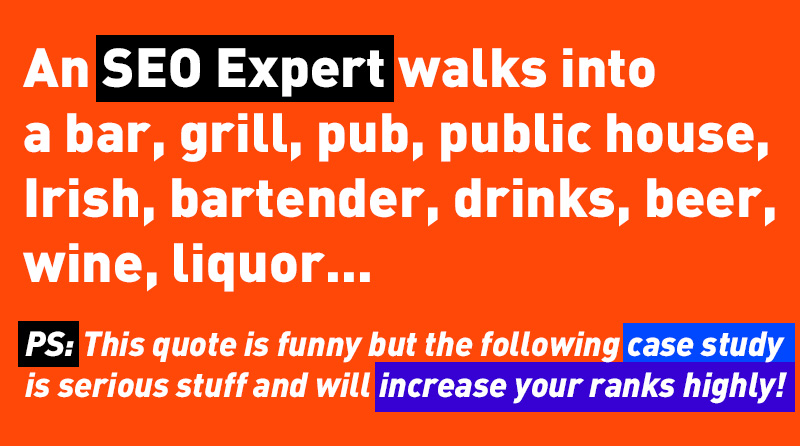
Synonyms are managed automatically by Google for years now, but it seems that there are a few smart & simple ways that you will allow you to increase your ranking using the following Synonym Google Ranking Technique presented below.
So why all the fuss about synonyms and Google being able to understand them? “Is it such a big deal?” you may ask. When you have your site ranked for “seo professional” and a query on its synonym “seo expert” lists you way below the first position, you are bleeding traffic. Check how much the monthly searches can differ based on the searched keyword.
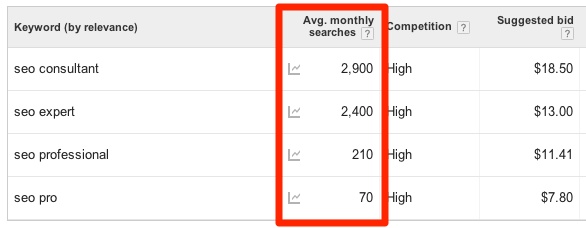
Imagine the traffic you may gain by simply optimizing your page for those synonyms too. That is why I randomly picked the 941% in the title of this article as it really depends on your situation. It can be 1% or it can be 10.000%. It is up to your niche and your own research and steps you take in order to conquer those ranks. A search engine cannot distinguish objects in photos and doesn’t accurately understand the meaning of a sentence. At the end of the day, the search engine’s main goal is to return the best results for the user’s search. In order to do that, Google has made efforts in teaching its algorithm “humanish” (aka Google Hummingbird) and has moved well beyond just word matching, to matching based on intent and understanding. The big G invests a lot in understanding concepts and synonyms are only a small example. This is really a revolutionary step in making search engines smarter in order to make order in the huge pile of information clutter. Ok. So let me tell you how it works and what you can do to increase your traffic on synonyms.
How does Google Rank a Site on Synonym Keywords?
With the risk of over loading you with information, allow me to clear things up a bit about what a synonym is. A synonym is commonly known as being a word or a phrase that means exactly or nearly the same as another word or phrase in the same language. There are simple, common synonyms like “happy – joyful” or “impartial – unbiased” but we also tend to use more subtle synonym expressions like “the East” as a synonym for the former “Soviet empire”. Google is getting better and better at understanding synonyms while it is becoming less and less dependent on exact keyword matches for returning results. If you are searching for “SEO Consultant”, Google will understand that even if a page says “SEO Expert” or “SEO Services” or “SEO company” these all represent the same concept. So it ranks pages that talk about “SEO Experts” and “SEO Companies” for the query “SEO Consultant”.
If your page is not well optimized for the synonym keywords you are losing a lot of SEO Visibility and Traffic.
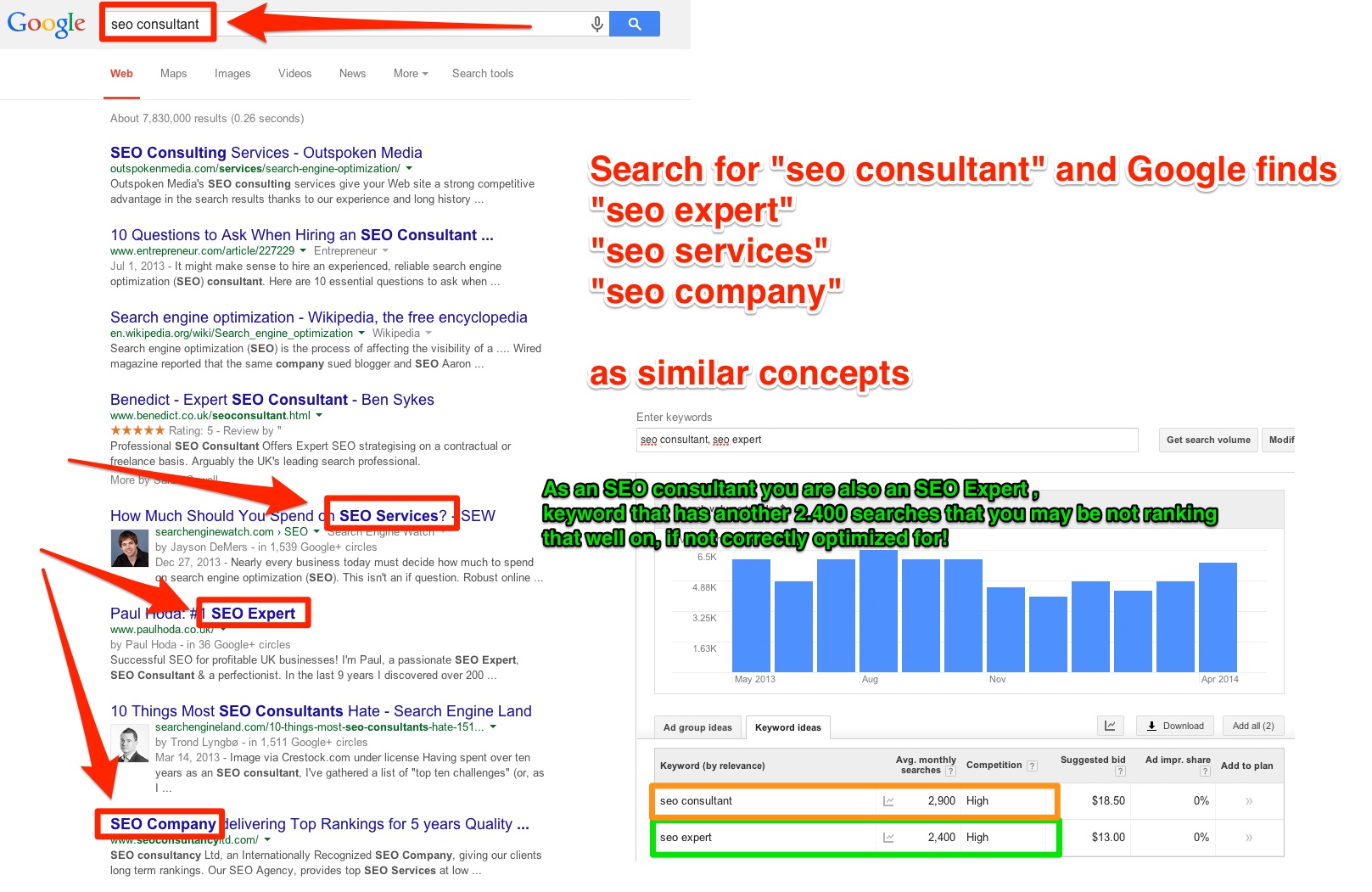
How does Google Actually Detect Synonyms?
Back in 2010 Matt Cutts, The Head of Google’s Webspam Team posted a blog post about how Google find synonyms where he referred an article about how Google tries to understand language and not only strings. He also goes further to underline the importance of synonyms for Google:
“However, our measurements show that synonyms affect 70 percent of user searches [note from Matt: of course, it could be a subtle change] across the more than 100 languages Google supports. We took a set of these queries and analyzed how precise the synonyms were, and were happy with the results: For every 50 queries where synonyms significantly improved the search results, we had only one truly bad synonym.”
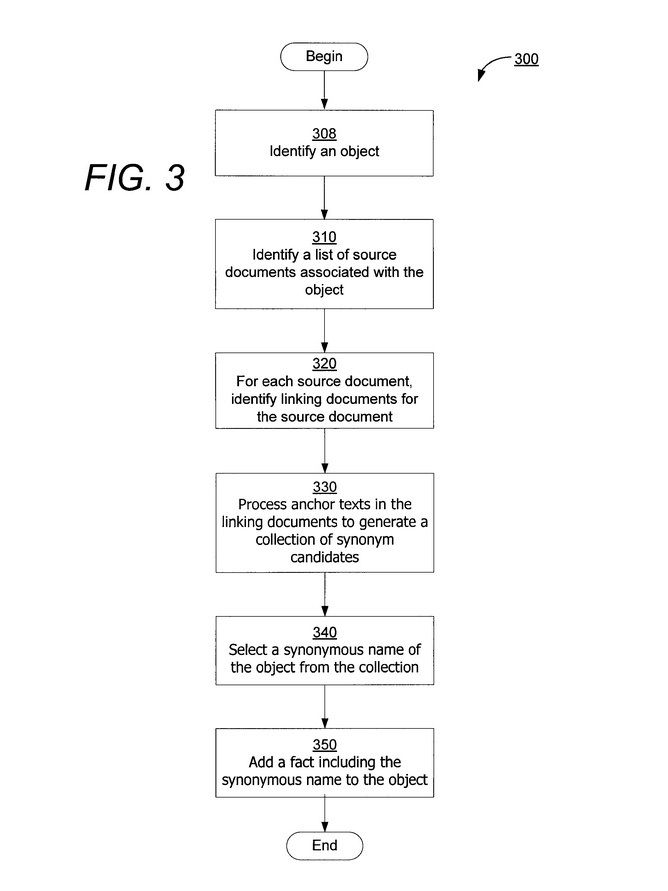
In a recent article, by Bill Slawski, about some Google Patents that Google uses to detect synonyms, an interesting patent is found that evidentiates how they go about detecting synonyms. It shows technique that they may also be using to identify synonyms using internal and external links anchor text. The basic idea is that Google can learn about things from both on-site and off-site factors. Having said that I think it is clear why Synonyms are a very important component when you talk about On-Page and Off-Page Optimization.
You can easily lose or gain traffic due to Not-Optimizing simple things that shall give you what is yours already.
The thing to keep in mind, however, is that in order to teach someone (or something) about any language-specific concept, you sometimes need to go broader. So it is with Google and the synonyms-inclusive searches. What we understand to be a synonym may not be immediately translatable to a machine. Or, as AJ Kohn would put it, while “auto”, “automobile” and “car” are all by default wired in our brains, there isn’t really anything intrinsic that makes one of those words trigger the others. Each of them can be used in a context that makes it no longer related to the other.
Sometimes the synonym that Google takes into account is not necessarily a grammatical one, but rather a logical, or contextual one.
Because the real stake for any search engine is to figure out not “what answer fits your question?” but rather “what did you really want to find out?”. Which is probably why Google will return results for “floral delivery” when you search for “flower shops”. Because that’s probably what you really wanted, isn’t it?
Synonyms vs Co-citation and Co-occurrence as Other Potential Rank Influencers
We need to clear up the terms “co-citation” and “co-occurrence” so we can easily make a distinction between them and synonyms. Why? Because we are trying to figure out how does Google rank a site by using synonyms and no other factors. So, like in any other serious research, we have to take into consideration all the variables that might influence the understanding of our subject (plus the fact that these are some interesting concepts that deserve our attention). Co-occurrence is the process whereby the words on the linking pages influence a site’s rankings. This means that the close proximity of important keywords develops a tight association. For example, let’s say you have a website about cooking. If a webpage with an article about fry pans, recipes, kitchen utensils links to your site, then it is likely that your site will get a ranking boost for these keywords. Google understands the correlation between the two of you and might use it as a ranking factor in its algorithm.
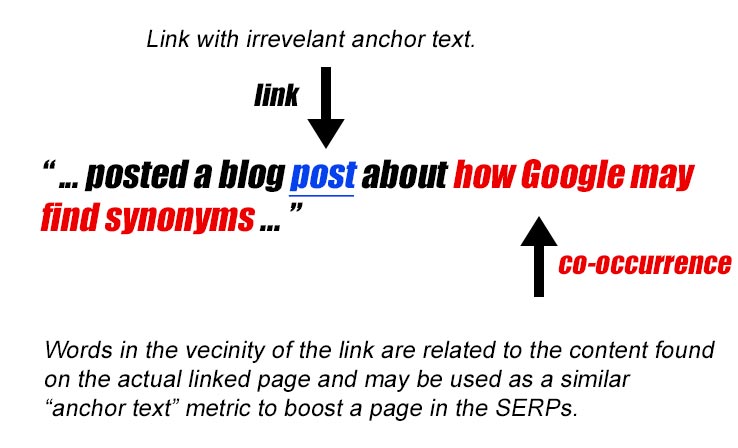
Co-citation is the process whereby other links on the linking pages influence a site’s ranking. As peculiar as it might sound, this is actually the process of link building without actual links. Let me explain you why: let’s say that websites A, B, C, D all link to the websites 1, 2, 3, 4. Even if web pages 1, 2, 3 and 4 don’t link to each other, Google will consider that these web pages are related to each other. The more sites they are linked from, the stronger the relation becomes between them.
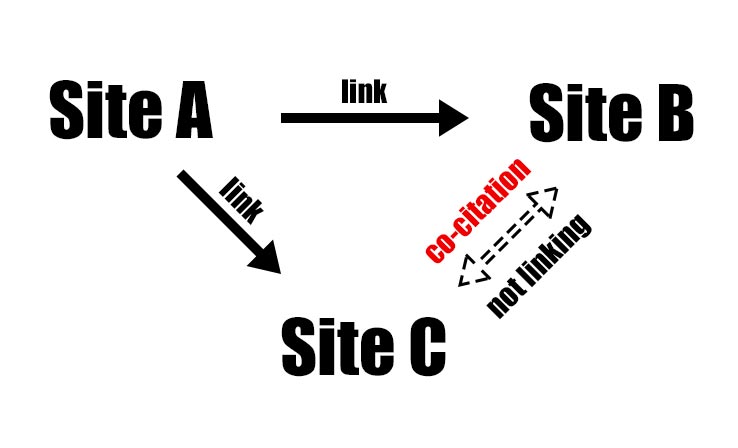
How to Identify Your Synonym Problems and Opportunities?
Watching the screenshot below, the one with the “seo expert” search query, we see that Google is doing pretty well at matching the right synonyms.
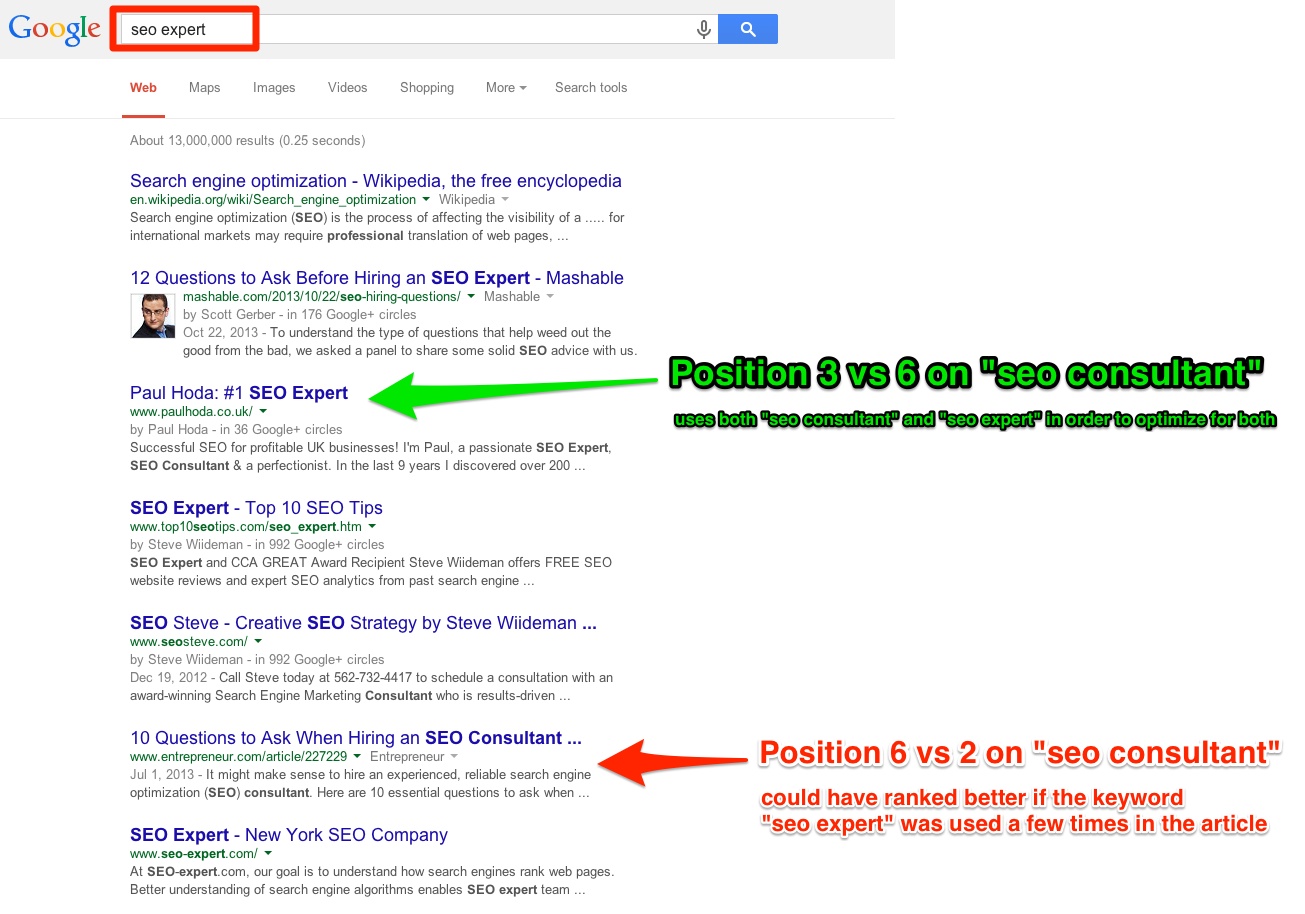
As we can see, the results are indeed relevant for both cases but they are not exactly the same. The website that used to be listed 2nd for the query “seo consultant” is listed 6th for the search query “seo expert”. This is because Google identified the synonym between the two words but it ranked better other sites that targeted the exact “seo expert” keyword. If this page was a bit more optimized, by using the phrase “seo expert” a few more times than this page could have ranked higher in the SERPS as the relation between the query and the page was stronger. These differentiated results had us thinking about the effects that synonyms might have in the overall ranking of a site. As we were intrigued enough by this fact, we went further with our research and we found a relevant example of webpage whose ranking is influenced by the Google’s synonym detection algorithm. Just like in the previous case, the site Towerhobbies.com ranks different for the search queries “remote control airplanes” and “radio control airplanes”. But there is more here than meets the eye.
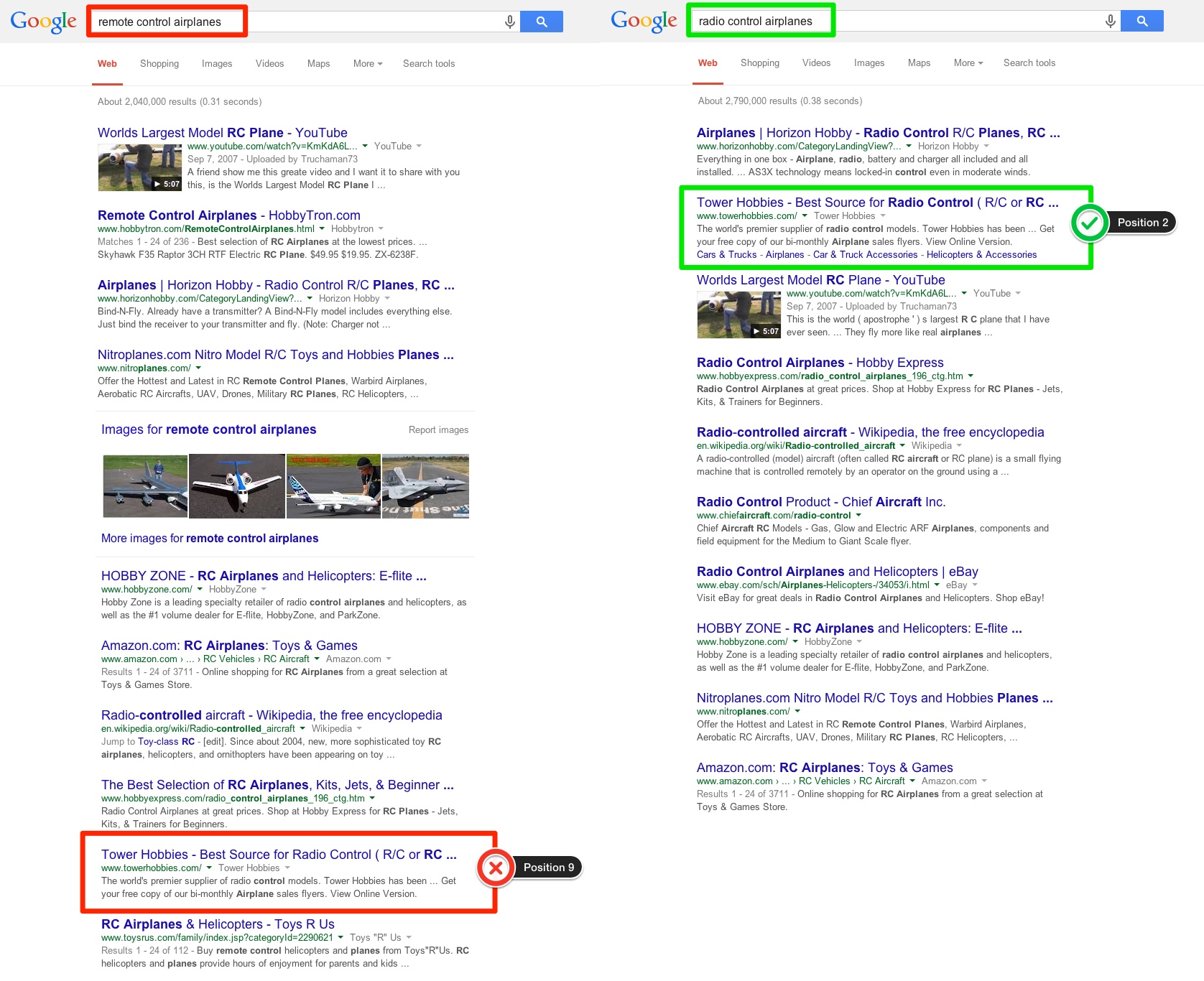
Google understands that RC (or R/C) is a synonym for remote or radio control and highlights it with bold even if we didn’t search for this specific keyword. Even more, www.towerhobbies.com ranks high for the keywords “remote control airplanes” even if it doesn’t contain these keywords in the title, in the domain, in the snippet or anywhere else on the site.
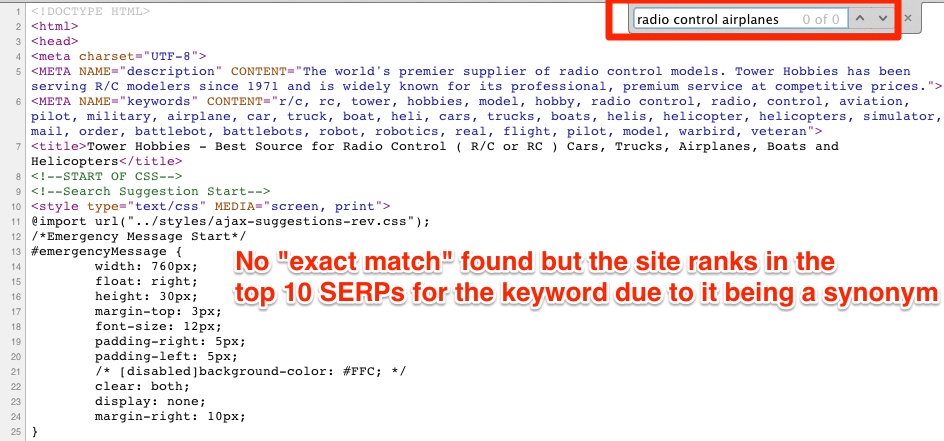
Another important metric that might influence the ranking of this page in Google are the Anchors that might be pointing to this site. Looking at the anchor text profile of this site we found out that the keyword “remote control airplanes” is not used as an anchor text for this site on external backlinks. However, the website ranks very high for these keywords. Quite interesting, right?
- But why does Google bold “RC” when I am looking for “remote control airplanes”?
- How does it know that they are synonyms?
It’s important to know that synonyms depend on the other words in your search query. There are many signals that Google takes into consideration when providing the results. Also, the personalization of the search can mean that you won’t necessarily always see the word “RC” bolded for “remote control”, but only when the algorithms think it is useful. Let’s take another example for a better understanding. When searching for “GM”, there are several potential correspondents to this abbreviation, from General Motors to Gmail. When searching for “GM cars”, you will see that General Motors will be bolded. When you search for “GM corn”, “Genetically Modified” will be bolded. For the search “GM high scores”, “game maker” will be bolded. Apparently, there are dozens of synonyms that Google understands and uses in relation with the “GM” keyword.

How to Find The Important Synonyms for Your Site?
The best way to look for synonyms is really just to use a dictionary, or thesaurus. The latter is better, because it focuses specifically on similar alternatives to a word. And like with many other things (but not all), the online version is often times better than the paper one.
Thesaurus.com, for instance, allows you to look for word synonyms but also to analyze and play around with the results.
You can sort them by relevance, complexity and length, you can filter them by common usage and you can also display them as a proximity graph if you’re a premium user (but if you’re not and don’t want to be, you can use visualthesaurus.com as an alternative for synonym maps). In addition, it lists a separate list of synonyms for each of the primary meanings of the word. To top it off, you also get a list of antonyms, to help you get additional ideas of what would constitute a relevant related word.
Making judgment calls is still necessary even when using a powerful thesaurus tool.
There are other online thesaurus options to be found, such as the Merriam-Webster thesaurus (which, interestingly enough, doesn’t have an entry for the word “thesaurus”) or the Collins English Thesaurus. While both are extremely competent, they are nowhere near as useful, or visually appealing, as the previously mentioned ones. Tower Hobbies , for instance, deals mainly with remote control models. Or is it radio control models? Probably the latter, since that’s the wording they use on the website, and they show up on the first page on a Google search for “radio control airplanes”. What’s interesting, though, is that they also show up on the first page for “remote control airplanes”, even though they don’t write themselves as such. It’s probably a good guess that users look for both, though. Yet, the most accurate way to find out which are the synonyms that are really worth using them is Google Keyword Planner. Here you can check out what the traffic for a certain keyword is and in what direction is worth investing energy and also money. If a synonym looks really great but has a small volume of searches, maybe you should find another one. Let’s take a look at the keyword traffic for “remote” and “radio” and see whether Tower Hobbies did the best choice when they chose their keywords. We see that for “radio control airplanes”, the number of average searches per month is around 1000, which is pretty good, but let’s see how are the things going for “remote control airplanes”.
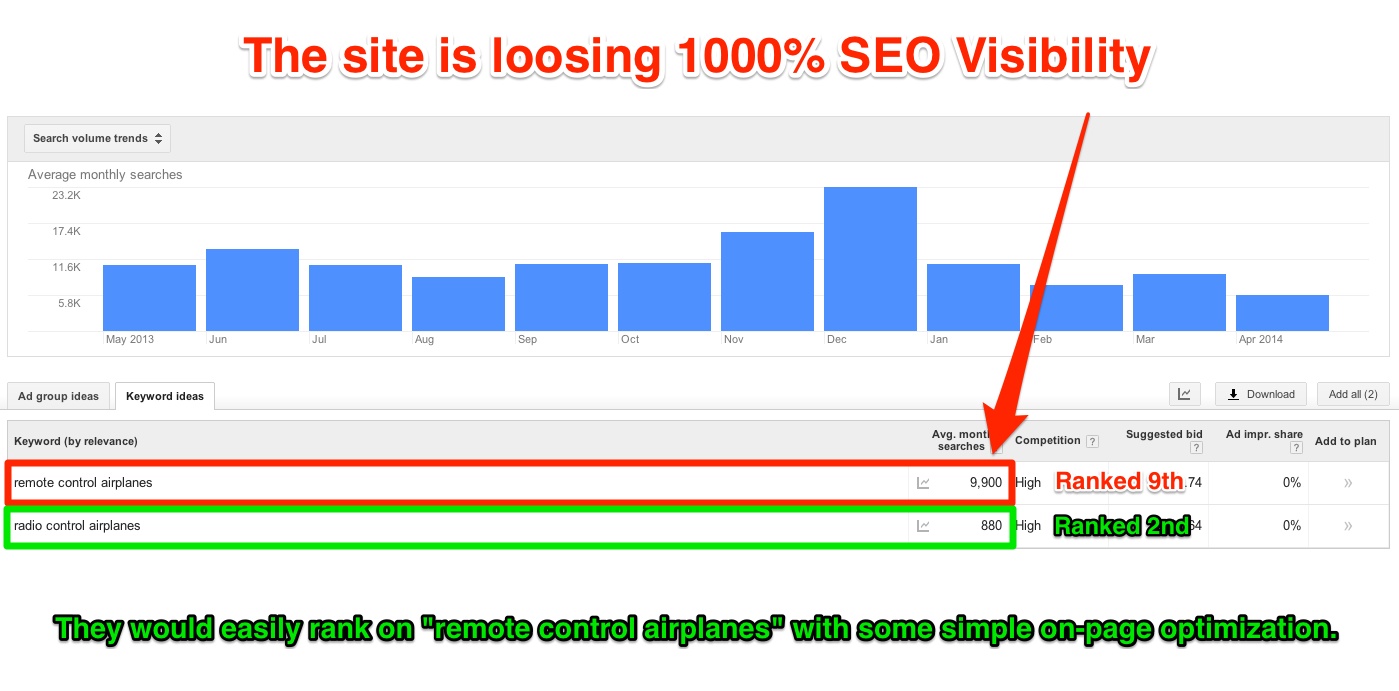 When it comes to “remote control airplanes”, the average monthly searches are 12 times more than the previous keyword. Then, why doesn’t towerhobbies.com get advantage of this highly searched keyword and uses a similar one but not so successful ? As we saw above, Tower Hobbies already ranks well on the first page of Google for “remote control airplanes” and if this website would invest in this specific keyword it would only propel itself upper.
When it comes to “remote control airplanes”, the average monthly searches are 12 times more than the previous keyword. Then, why doesn’t towerhobbies.com get advantage of this highly searched keyword and uses a similar one but not so successful ? As we saw above, Tower Hobbies already ranks well on the first page of Google for “remote control airplanes” and if this website would invest in this specific keyword it would only propel itself upper.
It is also important to understand the competition for each independent keyword so that you understand the chances you have to rank on the synonym keyword you target.

Use the Synonyms SEO Ranking Technique and Increase Your Rankings in Days
While the future of Google and other search engines may render this question useless, we’re not quite there yet. So for now, you can still help yourself by helping Google better understand what you’re about. If the object of your business can be expressed through more than one word/expression, perhaps it’s time to add synonyms to your site’s content. Of course, you have to be careful when doing so, because there’s a natural way of doing this, and a not-so-natural-seeming-way of doing it. If, for instance, Tower Hobbies were to present themselves as not only “The World’s Premier Supplier of the Finest in Radio Control Models”, but also, somewhere else on the first page, as the premier supplier of radio & remote control models, this would make a lot of sense and wouldn’t come off as shady . This could simply be achieved by clarifying the terminology in a presentation text, by adding a paragraph to the extent of “Radio control models, often referred to as remote control models, are models whose movement can be influenced by someone using a radio-wave based transmitter”. It’s not only good for Google ranks, it’s good for your audience and good for yourself. For very important keywords you should also alter the titles of the pages as those are very important metrics that are used for ranking. In this case the title should be: “
OLD – Tower Hobbies – Best Source for Radio Control ( R/C or RC ) Cars, Trucks, Airplanes, Boats and Helicopters NEW – Tower Hobbies – Best Source for Radio or Remote Control ( R/C or RC ) Cars, Trucks, Airplanes, Boats and Helicopters
Modify just a few pages at first, so that you can keep track and see if there is any exposure increase in the rankings. Have a variety of presentation texts, so that the use of synonyms is natural, organic.
Don’t feel obliged to bring in the synonym(s) with every occurrence of your keyword(s).
If you notice an improvement, extend the strategy to all of your pages, but do so gradually, otherwise it may look like an unnatural spike. Remember that the synonyms algorithm is making progress, so you don’t always need to spoon-feed it. Synonyms need not be next to each other or even in the same section, but the fact that they can be found on your website creates a certain context. This is, again, a matter of strategic choice and of human judgment.
Is this a safe strategy?
If we’re to believe Matt Cutts is not trying to purposefully steer us in the wrong direction, we should probably take his answer in this video as a reassurance that we’re on the right path in using synonyms, as this is probably helping Google’s dedicated team as well.
While cautiously fending off potential “old-school” keyword stuffers, Cutts’ answer is a fairly clear endorsement of the approach we’ve outlined. If you’re feeling uneasy about it, or don’t fully trust your sole judgment, ask someone else to look at the added text with a critical eye. Do not over-optimize. Allow accurate monitoring by making one change at a time. If something goes wrong with the search rankings, you’ll know the cause and you’ll be able to revert to the previous state.
All in all, it’s worth going for the synonyms. And it is a Very Simple Technique.
Google Synonym Detection Issues
Of course, if you ever tried to guess what someone else wanted at a certain point, there is big chance that you got it not only wrong, but completely backwards. It’s only human. So maybe it’s a sign of evolution that Google seems to make “human” mistakes. Looking up “SEO interview questions and answers for experienced” is, in fact, going to give you results about “SEO interview questions and answers for fresher”. As we can see the word experienced is matched with fresher as synonym. It could be a bug or a feature. A possible explanation would: The “experienced” word was the last word in the search, and thus may carry the least weight. So when someone starts a sentence by saying “I’m looking for SEO interview questions and answers for…”, you’ll probably finish the sentence – at least in your head – with “freshers”. Because they are the ones who probably need such suggestions, not experts, right? And since Google is trying to “think” based on what we think, it’s not hard to see why this may have occurred.
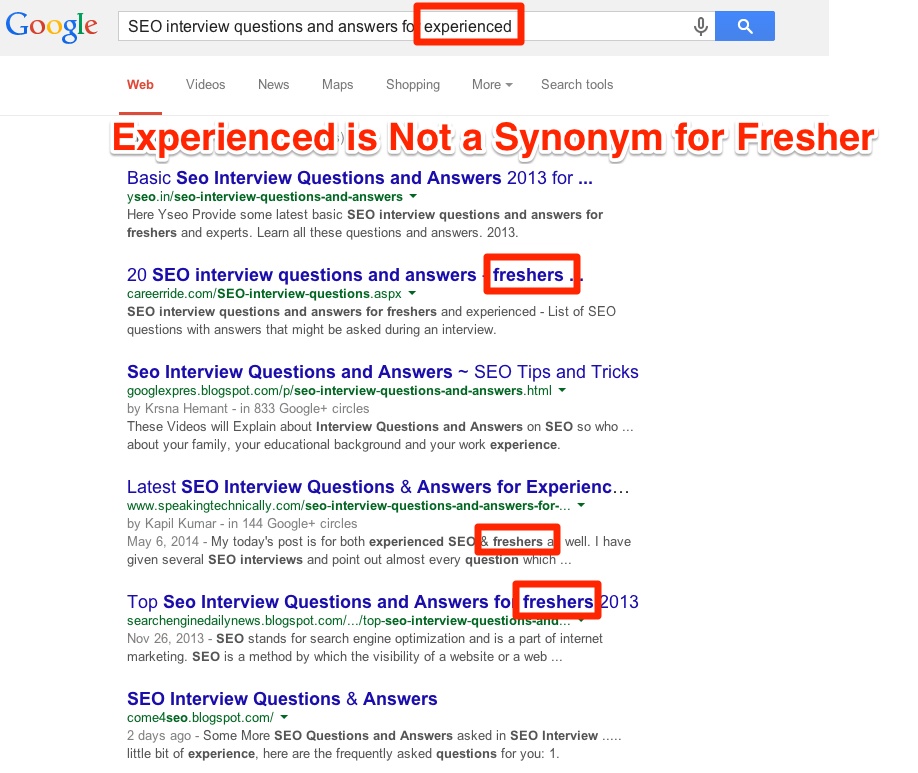
The takeaway here is that the algorithm is still learning, and we can help it to be more accurate by creating the correct semantic correlations.
It’s not a 100% predictable mechanism, but then again, that’s what makes it different from the past, and that’s what makes your job as an SEO expert different nowadays.
Fitting as many words and synonyms of those words into your website is no longer the goal, but rather adding specific content while maintaining a natural look.
Conclusion
It may seem as if history repeats itself.
“Are we back to keyword stuffing?”
But if that’s what you’re thinking, you couldn’t be further from the truth. The evolution of this algorithm is going to lead, in time, to the opposite scenario, where you won’t be able to “fool” the machine in pretty much any way, because it will be able to not only read but also understand what you’ve written. It will “get it”. It’s not there yet, but it’s learning, and that’s quite amazing. And you can play a part in the learning process and win from it also.
Use synonyms smartly on your website in order to rank higher not just because you’re obsessed with ranks, but because your website might be relevant to people who search using similar but not quite exactly the same words.
Mark Twain used to say that the difference between the right word and the almost right word was like that between a firefly and a lightning strike. Help Google bridge that gap by cautiously and organically improving your search – or better yet, your “being found” – potential. If, for instance, you’re dealing in electronic health records, there’s no reason to skip mentioning electronic medical records as well. There may be a lot fewer people looking for the latter than for the former, but they’re probably as much in need. And most importantly, you’re not fooling anyone by adding those words to your search word pool. Find the synonyms whose meaning adds value and are worthwhile ranking on. Integrate them seamlessly in your already existing content and watch what happens. Help Google understand what you’re about and you may find that, just like with people, once it “gets you”, you’ll get along just fine.

 Site Explorer
Site Explorer Keyword tool
Keyword tool Google Algorithm Changes
Google Algorithm Changes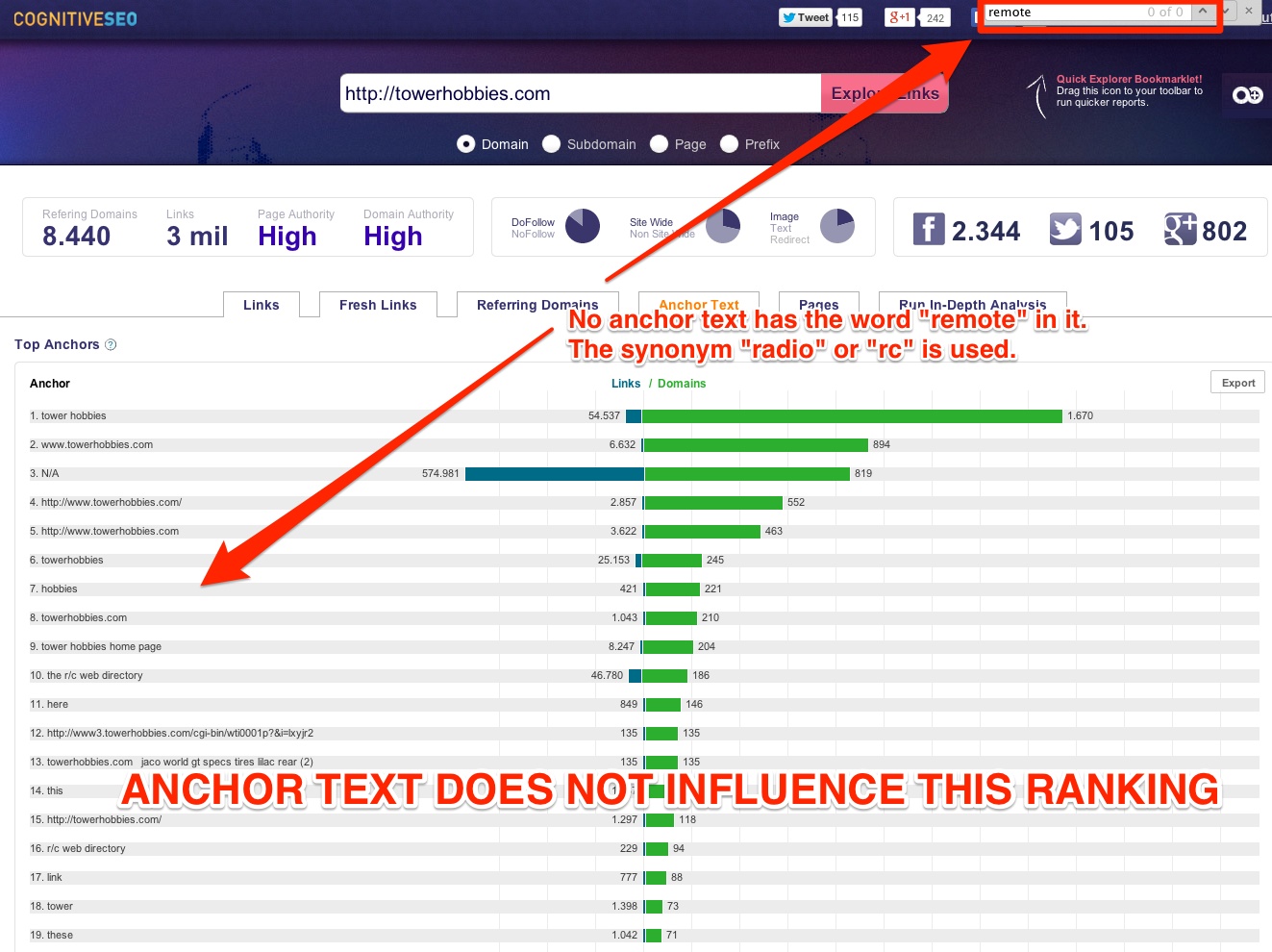


Wow, I gotta give to you on this one. Great article. I’ve always tried to use synonyms responsibly through our clients website and it paid off. I wouldn’t really say exploiting as much as “helping” visitors get to you. Amazing read.
glad you found it interesting and that you already had positive results using the technique. simple and effective … yet very few thing about it.
people don’t apply “synonym” tactics because google doesn’t have a synonym engine, they have a semantic engine so people apply semantic tactics.
people should apply “synonym” tactics because Google does not yet understand semantically everything. it is smart but it is not that smart. That is way white hat SEO still exists basically to guide Google to show the best results.
Nice post especially after the Panda 4.0 release as it certainly is a time to reflect on strategies. I think it is worth including anchor text in this discussion, where whilst the ratio of brand to money keys stands out variation of anchor text helps as well. The trick is to decide where onpage is the cutoff when related keys are over done and same goes for backlinks.
anchor text in this situation with the R/C toys is a factor that was not taken into consideration by Google I would say. But yes co-citation and occurrence is a very effective tactic and signal that I think Google will use more and more.
Nice writing. Although everyone know that Google updating algorithms one after the other. So, before applying this rule we should concern about Google’s Panda 4.0 release. Between, how does this relate to targeting LSI keywords in a content? -I am not sure that I am right to correlate latent semantic indexing keyword technique here.
as you can see in the Video from Matt Cutts, he advises SEOs to use it. As long as it is not keyword stuffing and it is normal content phrased in such a way that Google can understand it. I see no problem that an update could penalize this. This is totally white-hat as it does not abuse anything.
Brilliant! I am clear, the use of synonyms or what we call in technical term “LSI words” make our post to appear much better, more natural and that is the thing that Google likes. Also, it improves trust rate. Initially, I got confused with LSI technique. Of course both are similar and could be followed. Thanks Pal 🙂
One of the best articles on SEO I’ve read. Seriously.
However, speaking of SEO, the best quote in the whole article is a GRAPHIC. Why not post “An SEO Expert walks into a bar, grill, pub, public house, bartender, drinks, beer, wine, liquor” as text instead of a graphic? I see you did tage it in the title, alt, and src, but the text itself wasnt actually text:
title=”An Seo Expert walks into a bar”
alt=”An Seo Expert walks into a bar”
src=”https://cognitiveseo.com/blog/wp-content/uploads/2014/05/an-seo-expert-walk-into-a-bar1.jpg”
Do you have info whether “text as text” vs. “text as graphic, but properly tagged” makes a difference for SEO? Especially as you incorporate design elements, it is harder to turn graphic into texts. Thoughts?
🙂 did not optimize for that keyword indeed.
but Google does read images too 🙂 text s text is better surely now.
Google does read images. Take a look at Google Keep 😉
Apparently they have been doing this for a long time. It is why I think image assets will become even more important as the semweb increases.
yes but as with synonyms text for now does have higher weights in terms of a signal I think.
Cat photo query? Cat pictures query? I think the cat stole parts of this article, and hid them at the bottom of his litter box, because there’s no cat info here.
:). that was an initial idea to showcase the synonym detection and when I decided to change it the pharagrah slipped me “eye” 🙂 tks for spotting it. I modified it accordingly. The idea was to show the picture vs photo simple synonym identification.
Great article indeed, I think we should apply “synonym” tactics but not to over do it to avoid keyword stuffing.
indeed
Dude your a boss, great article! Loving the “fresher” for “experienced” example.
Hi Razvan,
Google tries to show the sites in its SERPs according to users intent. I’m wondering how to guess what the internet users mean when they write generic keywords like “london underground”. Do they want london underground map, official website of London Underground ? Do you know some tools or site that allow to know what the user mean
several ways: based on user location, user past history etc. They can identify your intent with some clarity.
This is crazy cool. I know Google would use synonyms in its search, but not to this extent. Using it to your advantage is very interesting. I am definitely going to take them into consideration. This is the useful information I like to read about when it comes to SEO. Thank you.
😉 glad I could help.
Hi Razvan…. An awesome post and your team has done a real good work with the Tool. Thanks for everything : ) !! Cognitive SEO has helped me remove the penalties from a lot of my client websites….. One of best tools in the Market : )
Hi Tony, tks for the appreciation. Glad to hear your successful experience with the tool. I would like to add though that the tool is here to ease the process for you … but in the end the ones who makes the difference is You. So my congratulations go to you for doing it successfully.
It is certainly also about a balanced distribution of the synonyms, but the more holistic a text is written the more synonyms will naturally be used usually.
just be sure to do a keyword research too on them and see what makes sense and what does not.
Long post but it definitely worth the time, congnitiveseo has helped me in dealing with my websites.
Thanks for the article. I have long thought that LSI had an influence on rankings and your article confirms many of my thoguhts
Synonyms are definitely an important factor. This is a great article. thank you for sharing.
This post was interesting read, LSI is powerful when used correctly. As you have given example of cat and dog which really makes sense because LSI keyword are generated by search engine bots so being human we need to put our mind at work before using these words!
Synonyms play a great role in ranking these days. While doing analysis, we found that some website dont even have the exact match keywords on their pages for rankings, instead they were using the synonyms for those keywords. And they have occupied the first position.
It helps a lot
Great Post, I find this to be very helpful and I will be sure to implement this more in the future. I also find this helpful towards deciding on what I should make the titles of my sites so I can get some synonyms in there as well, since titles have a bit more influence in comparison to on-page content (but on-page definitely counts). Thanks for the post and I’ll be sure to come back for more!
Very instructive article! I got some questions:
1) In Germany many people search for experience with some products. (I try to translate the keyword stuff in English.) Many people who want to get informations search for example for “iPhone X experience” and as a result you will get a lot of articles on Google with that longtail keyword.
In that case…is the keyword “test” a synonym for “experience”? I think not. But for example if someone searches for “iPhone X experience” they would probably also search for “iPhone X test”. What would you recommend in that case?
2) When I optimize an article on the keyword “iPhone X test” I would write that keyword for example 15 times. I guess while writing the text I would also write unintentionally a couple of times the shorttail keyword “test”, maybe more often than the longtail keyword. Would you recommend to delete some of the “test” keywords? Maybe otherwise google thinks that I optimized on 2 keyword?!
Regards
Florian
This is, honestly, one of the best SEO articles I’ve read in years.
I want to share my thoughts on non-English SEO, particularly SEO for “small” languages like Serbian or Czech. Google is just not there and it doesn’t recognize many exact synonyms as such. An example is the Serbian term “izrada sajta”. It means EXACTLY the same as “izrada web sajtova” – basically “website design” in English, and still Google doesn’t recognize this and instead of these two interchangeable terms it finds loosely related queries to be synonyms. It drives me crazy because they are pretty much forcing me to do keyword stuffing with multiple keywords with same meaning in order to achieve better rankings. So, for languages other than English, situation is pretty bad regarding SEO efforts and we have to use some stupid search terms, it’s like how you explained in the article, but much much worse situation, since Google algorithms are underdeveloped for small nations.
Thanks for sharing this! Indeed, I’ve heard the same story from other webmaster coming from countries where English, French or German weren’t the official languages. But I do believe (and hope) that Google will get better at this.
Do you mind if I quote a few of your posts as long as I
provide credit and sources back to your webpage? My users would really benefit from some of the information you present here.
Please let me know if this alright with you. Thanks a lot!
Hi!
Glad you find our pieces of content of interest.
Sure, we believe that sharing knowledge is a step towards progress 🙂
Great article! We always have to adapt to Google’s ever-changing algorithms.
I’ve seen this quite often, and especially notice it after certain major algorithm updates when Google significantly change their understanding of certain words. One I noticed was ‘repairs’ recognising ‘service’ or ‘servicing’ as being the same when preceded by ‘garage door’ on a client’s website.
Razvan, Great article! After 20 years of doing SEO, it’s refreshing to see there is always something new to learn. I’ve not considered delving deeper into research about synonyms. While I’m familiar with them and do use them, I was unaware of the true importance. Thank you for sharing.